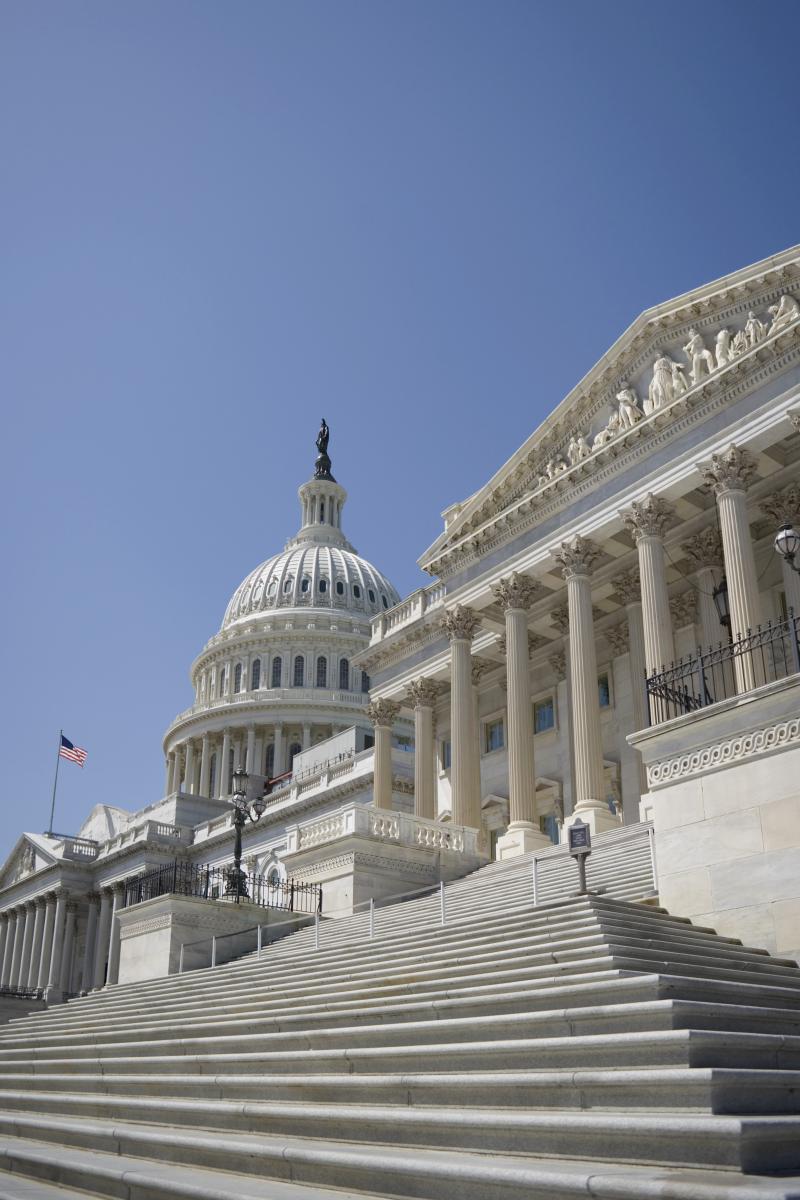One day after the Republican-led House of Representatives approved a resolution to block the Labor Department’s so-called environmental, social and governance (ESG) rule, the Senate followed suit.
 Joining all Republican senators in supporting the resolution (H.J. Res. 30) were Democrats Joe Manchin (WV) and Jon Tester (MT), resulting in a March 1 vote of 50-46 (with one Republican and three Democrats absent for the vote). The resolution is now cleared for President Biden’s consideration, where he has vowed to veto it.
Joining all Republican senators in supporting the resolution (H.J. Res. 30) were Democrats Joe Manchin (WV) and Jon Tester (MT), resulting in a March 1 vote of 50-46 (with one Republican and three Democrats absent for the vote). The resolution is now cleared for President Biden’s consideration, where he has vowed to veto it.
The resolution, which was originally introduced by Rep. Andy Barr (R-KY) in the House and Sen. Mike Braun (R-IN) in the Senate, was approved Feb. 28 in the House on a near party-line vote of 216-204. The two-page resolution simply states, “That Congress disapproves the rule submitted by the Department of Labor relating to ‘Prudence and Loyalty in Selecting Plan Investments and Exercising Shareholder Rights’ (87 Fed. Reg. 73822 (December 1, 2022)), and such rule shall have no force or effect.”
Earlier this week, it wasn’t clear whether Senate Republicans had the votes to overturn the rule, but Sen. Tester, in a statement released earlier in the day on March 1, announced his intent to vote for the disapproval resolution.
“At a time when working families are dealing with higher costs, from health care to housing, we need to be focused on ensuring Montanans’ retirement savings are on the strongest footing possible,” Sen. Tester stated, adding, “I’m opposing this Biden administration rule because I believe it undermines retirement accounts for working Montanans and is wrong for my state.”
Meanwhile, the Biden administration had already announced that he would veto H.J. Res. 30 if it were presented to him—which would be the first of his administration.
“To be clear, the 2022 rule is not a mandate—it does not require any fiduciary to make investment decisions based solely on ESG factors. The rule simply makes sure that retirement plan fiduciaries must engage in a risk and return analysis of their investment decisions and recognizes that these factors can be relevant to that analysis.”
The White House further contends that the rule issued in 2020 under the Trump administration had a “chilling effect” on retirement investment advisers otherwise inclined to consider ESG factors when making investment decisions, even if the advisor determined that these factors were material to investment decisions.
“That rule stepped between workers and the investment advisers that they have trusted to protect their hard-earning life savings. The 2020 rule effectively stopped plan managers from considering all factors relevant to investment decisions that should be designed to protect the hard-earned savings they were charged to manage,” the Biden statement emphasized.
The final rule, which allows plan fiduciaries to consider climate change and other ESG factors when they select retirement investments and exercise shareholder rights, such as proxy voting, was published in the Federal Register on Dec. 1, 2022, and became effective Jan. 30, 2023, except for a delayed applicability date for certain proxy voting provisions.
The disapproval resolution was put forward using the Congressional Review Act’s expedited procedures that gives Congress the ability to block newly finalized federal rules. Notably, a rule that is disapproved using this procedure is not only nullified, but the respective agency is also prevented from reissuing a “substantially similar” rule unless Congress authorizes it to do so through subsequent legislation.
So where does this leave things? At the congressional level, the issue will likely remain a hot-button political football with both sides continuing to dig in further. Sen. Tina Smith (D-MN) recently reintroduced her Freedom to Invest in a Sustainable Future Act (S. 523) to provide “legal certainty” to plan sponsors and fiduciaries who wish to consider ESG factors, but given the politics, passing her legislation would appear to be an uphill battle.
The DOL’s rule is also the subject of two legal challenges, including a suit brought in late January by a coalition of 25 State Attorneys General (along with a plan sponsor and an unrelated plan participant) before the U.S. District Court for the Northern District of Texas, along with a suit filed by DC plan participants in late February before the U.S. District Court for the Eastern District of Wisconsin. Both suits make similar arguments, contending, among other things, that the ESG rule violates the Administrative Procedure Act and ERISA, and is arbitrary and capricious.

